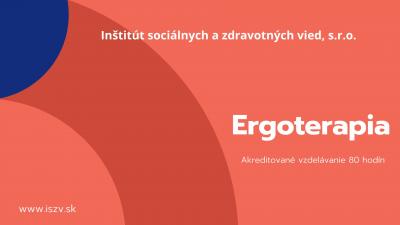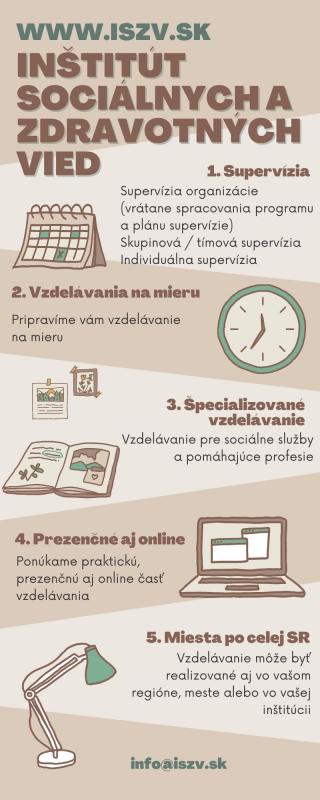Abstract: Europe has a challenge how to avoid decreasing of humanity, to keep sustainable decent life in time of asking for economic growth. Europe does not use all international social rights instruments. Social justice is not fully guaranteed for majority of Europeans. Central and Eastern Europe show many times the worst social conditions. Social cohesion is not fully applied. Social protection is a universal right which is now completed with right of guaranteed minimum. ICSW Europe with cooperation with all main stakeholders has to struggle for better life.
Keywords: Cohesion, Decent life, Humanity, Human rights, Inclusion, Social justice. Social protection floors, Solidarity.
Slovak version of the article: Garantovaný slušný život (v strednej a východnej Európe)
Link: http://www.prohuman.sk/socialna-praca/garantovany-slusny-zivot-v-stredne...
Introduction
Social inclusion according to the leading think-tank “Friends of Europe” is only rhetoric by the European Union and without real delivery is counter-productive in terms of the EU’s own legitimacy. We need to understand what social inclusion means in practice, and how member states can deliver it. Universal access to social services is a basic feature of the European social model, and should enjoy greater prominence in a social investment strategy, with access to quality child-care a prime example. European policy should be considered with overall quality of minimum income protection, with minimum wages, social benefits, minimum income protection with reference to the economic development of each EU country (p. 35, Unequal Europe, 2015).
Fundamental changes in Eastern Europe started twenty five years ago. Radical privatization schemes and a flourishing market economy built on foreign investment were offered not simply as the path to democracy but as the name and the measure of democracy in these nations. Democracy, in these countries, did not signify a set of independent political institutions and civic practices comprising equality, freedom, autonomy and the principle of popular sovereignty but rather indicated only a state and subjects organized by market rationality. (pp. 48-49, Brown, 2005). European Union left this space to non-European agencies of Bretton Woods’s system and neoliberal think-tanks. Social scheme has been changed more to the examples from Latin America, than to European social standard (p.43, Pension Issues, 2005). Pension reform has been implemented by using not EU usual procedures, like in Slovakia, even by abolishing social dialogue (p. 296, Hettes, 2011). Legacy of this motion is sometime, irreversible change we can find in ongoing privatisation, which raise serious doubts about welfare states future in this region. Social work alone as practice based on human rights is jeopardized nowadays as well by this development.
SOLIDARITY OR AUSTERITY
People live almost without intergenerational and regional solidarity, the growth of dependent not active population and increasing share of poor people (also children) threaten the social welfare and guaranteed social rights of the future generations. Social security schemes are jeopardized by cost saving steps that threaten future sustainability of decent life. According to the OECD each one year more in expected length of living advances GDP by 4 % (pp. 138-139, Social Policies, 2013). It is worth to invest in social sphere for sake of economic growth. WHO proclaimed that the average association observed in EU countries for a 1% rise in the unemployment rate is a 0.8% rise in the suicide rate (p. 11., Impact of economic crises on mental health, 2011). That means that there is now socially acceptable level of unemployment. Austerity measures result in the rise of social insecurity. Sustainable cost saving measures without pro-future oriented investment is not way how to guarantee sustainable decent life in Europe.
Europe is influenced by globalization, Europeanization, ageing and weakening of national state role and by free international mobility (people, values, as well diseases and other troubles). Rapidly is changing the role and type of family in society. Father and mother caring jointly after the children is not typical. Other forms of family are prevailing in Slovakia. Unemployment, previously rare is now “standard” situation. Possibility of social aid has changed into right to social protection (since the year 2012). Wealth and health of nations is frequently measured by life expectancy and by income. Generally rich becomes even richer and poor people are poorer. We can speak about parallel living of them like it was during the apartheid in South Africa when the “white folk” accepted status quo of minimal rights for the “blacks and coloured” as natural situation. The more social difference is between people, the less empathy or social cohesion prevails. Important part of society does not have enough adequate feeding, accommodation (homelessness), access to basic services in general interests.
SOCIALLY FAIR EUROPE
Europe is usually counted among the more developed “North”. Hans Rosling (from Karolinska Institutet) with using of popular animation called “Gapminder World” illustrates this. Gapminder.org is a non-profit venture promoting sustainable global development. The free of charge animation shows relation between wealth (measured in GDP per capita) and expected length of life. We can rank majority of the workshop participant counties according the Gapminder World into the wealth order like this: Norway, Austria, Sweden, Germany, Finland, Slovakia, Lithuania, Russian Federation, Kazakhstan, Azerbaijan, Armenia, Georgia, Moldova and Kyrgyzstan. We know so called “Easterlin Paradox” - high incomes temporally correlate with happiness, but in long term, increased income does not correlate with increased happiness. Developed world (mainly OECD member states) acknowledged that GDP does not mean immediate happiness, cohesion and social justice. New measurements like “Better Life Index” or “Gross Domestic Happiness” have been accepted. Now, within OECD Better Life Index housing, community, education, environment, civic engagement, life satisfaction, health, safety and work life balance, jobs are important, not only income or just GDP. Currently the Europe does not look like good mother which cares about for all equally. Do we have fair society for all? As is written above about divided society, Europe suffers also from low cohesion among the people, generations, among the regions and countries as well. Minor part of society has undeserved surplus and bigger part on the contrary obtains less and less.
We often hear about too generous social schemes for people who don’t deserve them. Even the majority of people could be convinced of it. Anne Van Lancker (2015) drafted the report which describes the reality of generosity. Minimum income schemes in terms of relative generosity are as such: high level of generosity (over 50%) only in Denmark, medium-high level of generosity (40-50%) is in Austria, Belgium, Ireland, Iceland, Lithuania, Luxembourg, Macedonia, Netherlands, medium-low level of generosity (30-40%) in Cyprus, Germany, Spain, Finland, France, Malta, Norway, United Kingdom, low level of generosity (20-30%) in Czechia, Estonia, Hungary, Portugal, Romania, Sweden and very low level of generosity (under 20%) in Bulgaria, Latvia, Poland, Slovakia. Countries with low to very low levels of generosity are all the countries of Central and Eastern Europe, except Portugal and Sweden. In these countries a considerable effort is needed to bring their minimum income schemes to an adequate level (p. 15, Van Lancker, 2015). Minimum wages have to be significantly above the highest social assistance/benefits if want to escape from poverty traps.
Material deprivation, according to data from Eurostat, complements the income perspective by providing an estimate of the proportion of people whose living conditions are severely affected by a lack of resources; among material deprivation items, the inability to afford a meal with meat, chicken, fish or a vegetarian equivalent every second day. Around 10% of EU citizens cannot afford a proper meal (p. 6, DI MEGLIO, 2013). The worst situation is in Central and Eastern Europe (2011) in Bulgaria, Latvia, Hungary, Slovakia, Lithuania and Romania (two or even four times worse reality).
Former US labour secretary Robert Reich argues on his blog that America’s economy is immoral. Economy depends fundamentally on public morality; some shared standards about what sorts of activities are impermissible because they so fundamentally violate trust that they threaten to undermine the social fabric. In his testimony before the US Congress describes danger of unfair wealth division favouring famous 1% of society. The situation of wealth distribution now is very similar to the time of great depression in the nineties of last century (p. 5, Reich, 2014). Great in-solidarity creates the first column (1929) and second column grew now. Picture of this looks like the two column Golden Gate Bridge in San Francisco.
Basic question is to support sustainable growth (sources are not unlimited) or sustainable decent life and happiness? Discussion within society needs to be focused on whether to orient our future only on profit of minor part of society (GDP) or harmony and decent sustainable life of all (GDH). Supporting of social development is not luxury – but precondition of sustainable decent life is not generally accepted in daily policy. Social development financing as investment into future is not present at all or only partly in many national development programs. ILO conditioned further economic development by suitable social protection since 2001 in its resolution concerning social security (M. Hettes was one member of the drafting group). Region suffers from social injustice and greedy of better of minority. Austerity measures are applied also on health care, social spending on health influence all case mortality. British Medical Journal informed in 2010 about not positively challenging situation in four Central-European countries (Slovakia, the Czech Republic, Poland and Hungary) due to financial crises (Stuckler et al., 2010).
One of fundamental issue for effectiveness of social system is its transparency and fairness. Many social activities depend on public funding. How much it made in harmony with democracy. According to European Commission during the judging of the European semester the perception of delivering the public funds to companies, individuals, or groups is made mostly due to corruption. The worst situation is in Slovakia, the Czech Republic, Romania, Hungary and Bulgaria. This practice there is very common (p. 9, Quality of Public Administration, 2012). In general, favouritism by public administration induced through corruption creates inefficiencies and misallocations because as services are not offered on a fair basis to all based on objective criteria. Corruption in the award of public contracts often results in poor quality outcomes. From the source we know judicial system and law enforcement is corrupt there as well in basically the same countries.
Unemployment threats the people in their life security. According to the surveys 64% of Slovak people feel fear of being fired. But Slovakia is giving almost “nothing” from its own budget (in share from GDP) into active labour policy to compare with other OECD members. In Slovakia exists paradoxically together with high rate of unemployment shortage of staff-members in labour offices. Personal counselling for unemployed people is not possible to deliver in good quality due to high caseload of clients on one labour office specialist and it is questionable whether assessments can be done properly and can lead to well-founded decisions. Unemployment rate was in July 2015 higher than average in Latvia, Lithuania, Slovakia and Croatia. We can hardly stand behind the statement that who want to work, will find the job for the reason of absolute non-existence of the vacancies. The majority of the unemployed in the EU do not receive unemployment benefits. DG Employment, Social Affairs and Inclusion in Brussels announced on 16 September 2016 that only small part of unemployed people collect their unemployment benefits due to austerity measures and addressing. In Romania, Poland and Slovakia less than 20% of people without employment obtain them. Rate of unemployment differs among age groups. By unemployment many young people suffer. This is background for growing hate against older generations. Young people think that the fault is on the elderly side (ageism). But average exit age from the labour market (by Eurostat) in Slovakia, Poland and Hungary is as early as 58 – 59, that means earlier than is statutory pension age (p. 33, Demography, 2012). Adequate, decent and sustainable old-age benefits could be attained mainly by full employment in each age group.
Employment in human health and social work has important role in labour market balance keeping during the period of crises. We can compare their rates in the years 1995 and 2011. Slovakia, Poland, the Czech Republic and Hungary have unused capacity in this sector and in Slovak case, the share even drops down (p. 101, Employment and Social Developments in Europe, 2013).
European countries suffer from low fertility rate. Birth of child is frequently accompanied by worsening of standard of living. Society does not have real interest in its basic task – pure replacement of the life. Many mothers do not have chance to use preschool utility and this resulted in low employment of women. Availability of preschool facilities represents an example of wise social investment policy. Shortage of economic active people cannot be sustainable saturated by import (immigration) of new Europeans. Ageing (better say, missing of children) is global problem and sooner or later there will be no young people at “disposable” globally.
Every 4th person in Europe is now in risk of poverty. Each 5th Slovak citizen cannot afford standard food, in contrary to surpluses. We need guaranteed basic income. We will take action to achieve that. Even Jean-Claude Juncker, President of the European Commission, believes in his political guidelines that it is necessary for all EU Member States to put in place a minimum wage and basic guaranteed income (p. 21, Juncker, 2014). Nevertheless we are witness of discussions of necessity of the minimal wage. But why we do not have accepted idea of socially and ethically acceptable – maximum income? Social protection floor will be useful in Central European countries as well. Wage polarization is growing rapidly even during the crisis. Number of millionaires grows even during nowadays financial and economic crisis. Growth of labour productivity and growth of GDP per capita does not usually correspond with living standards growth. Slovakia has now higher income per capita (PPS) than the Czech Republic, Poland or Hungary. Slovakia already has more GDP per capita than Greece and Portugal, but old age benefits or wages are much lower. Slovakia´s economic power reached 76% of the EU average, but wages represent only one third of EU average. The costs of labour force in Poland, Hungary, Slovakia and the Czech Republic are very low to compare with the rest of Europe. The state behaves more like the 19th century workhouse than 21st century welfare state due to the fact of orientation on profit of anonym shareholders than social welfare of its known inhabitants.
European unification idea was based on social cohesion and solidarity. We can demonstrate clearly missing of solidarity by growing discrepancies between regions (subnational terrestrial units). Bratislava Capital Region holds now the 5th rank as for the economic wealth (measured by GDP per capita). Social situation and living standard but represents in its quality only of social quality of the regions, which are on lower positions like Vienna or Stockholm. The most economic desperate regions in Europe are in countries like Bulgaria, Romania, Poland and Hungary. High unemployment is in reality basically artificial. Publicly useful work is demanded everywhere. We are missing paid employment, not publicly useful work.
John M. Keynes already in 1930 left in the short essay (Economic Possibilities for our Grandchildren) message to his grandchildren in the form that love to the money as property, and the love to the money as instrument for the life, will be after one hundred years accepted as something morbid, semi-legal a semi-pathological like mental disease. Children of his children are now among us and for that the time we are living has to be time of this thought. J. Keynes was the first who distinguishes between the work which we need just for physical surviving and the work we need for fulfilling of our humanity. Economy follows only the first form of work. With growing progress this kind of work is less and less important. Full human decent life is more important than pure collecting of material wealth. Therefore we are not able to solve the unemployment by another economic growth and additional production, which lost its sense.
Austerity measures, orientation on profit lead the society to neglecting of health, insecurity, decreasing of nutrition, lowering quality of accessible services, etc. Stagnation in rewarding for work and overall weak purchasing power of people results in low demand for additional production and services. This is origin reason of the crisis. Unemployment is usually many times accompanied by family disintegration, crimes and suicides. People are afraid off unemployment, therefore work for not decent wage and under precarious conditions. We can inform about the Council of Europe expert committee on Social Charter findings that the minimum wage in Slovakia is in contradictory with international obligations. Even double increase of wages would not remove discrimination. Raise of income is only way how to increase demand for services, for new products, new work and to overcome the crises.
The most representative association of socially oriented European NGOs is Social Platform with its 48 members, representing more than 2800 organizations all over the European Union. M. Hettes represents ICSW Europe in Social Platform Steering Group, which approves its position documents. Social Platform policy is to guarantee adequate minimum income schemes of at least 60% of national median income to protect people against poverty across the life cycle, linked to reference budgets that capture real needs in relation to access to goods and services. Adequate minimum wage has to be set higher than adequate minimum income and with a minimum threshold of at least 60% of national median wage. Common standards for unemployment benefits have to be set at a level above adequate minimum income. Wide coverage must be ensured to avoid the exclusion of people who have not yet worked or have only worked for a limited period. Rights-based and non-discriminatory access have to be secured to quality, inclusive and affordable social, health, education and lifelong learning services, recognising that investment in such services also have a high potential for job creation.
SOCIAL PROTECTION FLOORS
Social protection is a set of policies and programs that are designed to provide social security on a broad basis. It is recognized by international labour standards and by the United Nations as a basic human right since 1948 by the Universal Declaration of Human Rights.
The obligation to extend social security which is anchored in the understanding of human rights was nearly forgotten in the course of the last decades. The obligation was so abstract that it was hard to translate it into concrete policy demands and objectives on a national level. And yet, with
Recommendation No. R. 202, a clear definition of the human right to social protection exists (p. 12, Civil Society Guide, 2015).
Social protection floors, were introduced by the International Labour Organization (ILO) Recommendation in 2012, is the first level of a comprehensive national social protection system. It guarantees access to essential services and security transfers. It is reality that each individual country has differing existing structures and needs and therefore Social protection floors are country-led approaches, based on existing framework of country needs, structures, objectives, dynamics, and priorities. Social protection floors are nationally owned and designed. They are affordable by all countries. Social protection floors are universal and it covers everyone. Social protection floors are rights based and are enshrined in the Universal Declaration. Social protection floors are only the first step in an ongoing process – not a ceiling. The ILO’s recommendation 202 (2012) has engaged an innovative action to enable states and citizens to act in order to establish such floors.
Agreement still needs to be reached among the states as to the meaning of this concept within the European Union, where social protection systems have already reached a certain level of completion. The ILO estimates that approximately 80% of the world population live without adequate income security or access to medical care. Only 49 countries (it is true that mainly European) have ratified also ILO Convention 102 on Social Security (minimum standards). The crisis that started in 2008, changed this mind-set and the international community focussed its goals on an increased social protection (Hettes, 2015).
International groundwork led to the adoption of the Recommendation in 2012 by delegations from the whole world in the International Labour Conference, establishing thus the concept of social protection floors. National social protection floors should comprise at least four earlier mentioned social security guarantees, defined at the national level. The Recommendation recognizes the primary responsibility of the ILO Member State in giving effect to social protection floors. Concept of a “Social protection floors“ needs to be examined in the context of the current situation in the EU.
The adoption of Recommendation 202 by all EU delegations at the International Labour Conference was justified by the social situation, especially since the crisis. Nevertheless, not all European citizens benefit from the social protection floors. EU bodies must be reminded and especially EU member states that they have a commitment to keep the social protection floor defined nationally, with its content, level and funding depending on the authorities in each country.
EU bodies tend to consider social protection floors more as safety nets that redress the marginal imbalances of a mainstream market-based approach.
Adoption of the lowest common denominator is unacceptable. Principles of solidarity and not-for-profit, rather than on market principles are acceptable. Establishment of national social protection floors should not be impeded by EU policies dominated by considerations that are too narrowly financial in nature, failing to take into account the major objectives of Agenda Europe 2020 in terms of employment and the fight against poverty. Europe remains an area where social rights have been supported at a high level over the decades but too much “targeting”, too many conditions, needless proofs, defective automation, etc. end up corrupting even the best systems.
Universal social cover is an essential element of social protection floors. Not all EU citizens have access to this yet and some no longer have access. Employment income no longer allows a large number of Europeans to live decently. There is no option but to advocate the adoption in each EU country of an inter-professional minimum wage, set taking into account local economic factors. For persons of working age who cannot work due to disability or unemployment, systems to guarantee a minimum income are also required.
Social platform supports the idea of social protection floors. We need also global activity/movement in support of this revolutionary change. Global Coalition for social protection floors exists. More information is selected from the Call published on 27 January 2014 or from its webpage http://www.socialprotectionfloorscoalition.org/.
The coalition unites more than 80 civil society and trade union organizations and promotes social protection floors as key instruments to achieve the overarching social goal of the global development agenda. Coalition subscribes to the fundamental goals of social justice (ILO Constitution and the Declaration of Philadelphia, Articles 22 to 26 of the Universal Declaration of Human Rights). Coalition wants the human right to social security, defined at least as guaranteed basic income security and access to essential health care, to be realized by 2030 – the next target date for the global development agenda. Sustainable development goal is also to implement nationally appropriate social protection systems and measures for all, including floors, and by 2030 achieve substantial coverage of the poor and the vulnerable.
Conclusion
Citizens and politicians have to find solution how to keep sustainable decent life in Europe in harmony with other parts of the World. What we have in common is the responsibility for ourselves, for our neighbourhood, for our country, for our European region, for Europe and for our Earth. Our future as humans is interconnected with future of the people on other continents. Peace and social justice is the way. We do not false enemies, we need to stop weakening of cohesion, humanity, solidarity and of social justice.
Author: Miloslav Hettes, Asst. Prof.
Bibliography
A social protection floor for everyone: a universal rights-based development goal. (27 January 2014), Global Coalition for Social Protection Floors, 5 p., http://cdn.ifsw.org/assets/ifsw_22348-2.pdf. [2015-11-20].
BROWN, Wendy. (2005). Edgework: Critical Essays on Knowledge and Politics. 176 pp. ISBN: 9780691123615
Civil Society Guide to National Social Protection Floors (2012). Friedrich Ebert Stiftung, 96 p. ISBN 978-3-95861-107-8.
Demography, active ageing and pensions (2012). Social Europe guide, Volume 3, European Union, 88 pp., ISBN 978-92-79-25009-5.
DI MEGLIO, Emilio (2013). Living standards falling in most Member States. Eurostat. Statistics in focus. 8/2013. ISSN 1977-0316. Catalogue number: KS-SF-13-008-EN-N. European Union.
Employment and Social Developments in Europe 2013. Chapter 1: EU employment in a global context. Brussels, 21.1.2014, SWD (2014) 26 final. PART 4/14, 126 pp.
HETTES, Miloslav (2011): The Slovak Republic, pp. 267-304. In: Pension Reform in Central and Eastern Europe in Times of Crisis, Austerity and Beyond (edited by K. Hirose). ILO Budapest, 366 pp., ISBN 978-92-2-125639-7.
HETTES, Miloslav (2015): Human Rights and Social Protection in Social Work (in Slovak). Bratislava: St. Elizabeth University of Health and Social Work, 242 pp. ISBN: 978-80-8132-128-3.
JUNCKER, Jean Claude (2014): A New Start for Europe: My Agenda for Jobs, Growth, Fairness and Democratic Change. Political Guidelines for the next European Commission Opening Statement in the European Parliament Plenary Session. Strasbourg, 15 July 2014, http://www.eesc.europa.eu/resources/docs/jean-claude-juncker---political.... [2015-11-20].
KEYNES, John Maynard (1930): Economic Possibilities for our Grandchildren, s. 358-373, In: Essays in Persuasion, W. W. Norton & Co., New York, 1963.
Quality of Public Administration (2012). Thematic Fiche, European Semester, European Commission, http://ec.europa.eu/europe2020/pdf/themes/34_public_administration.pdf.
REICH, Robert Bernard (2014). Income Inequality in the United States. Testimony before the Joint Economic Committee, United States Congress. January 16, 2014, 21 pp. http://www.jec.senate.gov/public/_cache/files/121e5a80-61e2-4c65-aa25-a0.... [2015-11-20].
Impact of economic crises on mental health (2011), 34 pp., World Health Organization Regional Office for Europe, Scherfigsvej 8, DK-2100 Copenhagen O, Denmark.
Social policies. Social Europe Guide. Volume 5. (2013). Brussels, European Commission, 78 pp., ISBN 978-92-79-31257.
Social security: A new consensus (2001). Geneva, International Labour Office, ISBN 92-2-112624-2.
STUCKLER, D., BASU, S., MCKEE, M. (2010): Budget Crises, Health, and Social Welfare Programe, pp. 77-79, in: BMJ (British Medical Journal), 10 July 2010, Volume 341.
The majority of the unemployed in the EU do not receive unemployment benefits. News 16/09/2015. DG Employment, Social Affairs and Inclusion. http://ec.europa.eu/social/main.jsp?langId=en&catId=1196&newsId=2318&fur....
The Pension Issues in New Member states. (2005). Pragma Consulting, Mechelen, 176 pp.
Unequal Europe recommendations for a more caring EU. Final report of the High-level group on “Social Union”. Spring 2015. Brussels: Friends of Europe, 21 pp. [2015-11-19] http://www.friendsofeurope.org/quality-europe/unequal-europe-recommendat....
VAN LANCKER, Anne (2015). Toward adequate and accessible Minimum Income Schemes in Europe. Analysis of Minimum Income Schemes and roadmaps in 30 countries participating in the EMIN project. Summary of Synthesis report. European Union, Brussels, 24 pp.
























